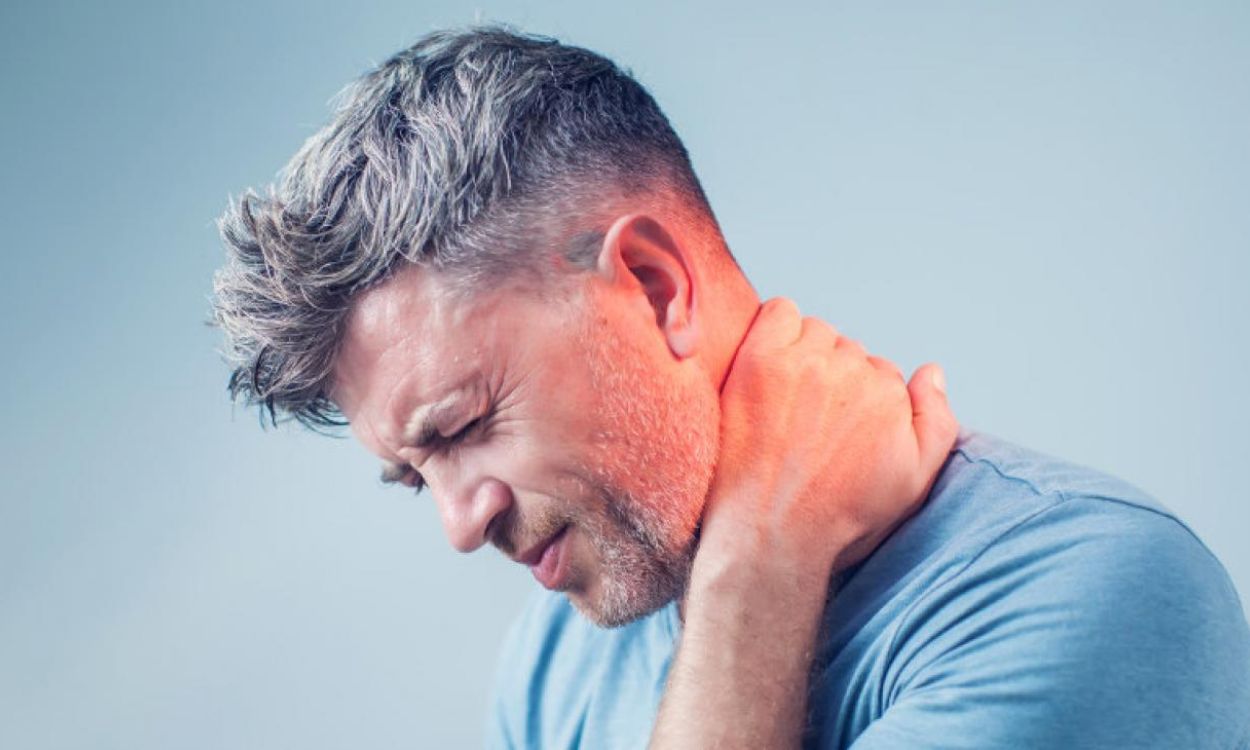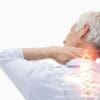Understanding the Connection Between Age and Neck Pain: A Comprehensive Guide
As we age, our bodies undergo numerous changes, and one of the most common complaints among older adults is neck pain. This discomfort can range from a mild, nagging ache to severe, debilitating pain that interferes with daily activities. Understanding the connection between age and neck pain is crucial for managing symptoms and improving quality of life. In this blog, we will delve into the various factors that contribute to neck pain as we age and offer insights on how to alleviate it.
The Anatomy of the Neck
Before diving into the specifics of age-related neck pain, it’s essential to understand the anatomy of the neck. The cervical spine, or neck region, is made up of seven vertebrae labeled C1 through C7. These vertebrae are supported by muscles, tendons, and ligaments, which provide mobility and stability. Intervertebral discs act as cushions between the vertebrae, absorbing shocks and allowing for flexibility.
Age-Related Changes in the Cervical Spine
Degenerative Disc Disease
One of the most common age-related changes in the cervical spine is degenerative disc disease. As we age, the intervertebral discs lose hydration and elasticity, leading to a decrease in their shock-absorbing capabilities. This can cause the discs to become thinner and less flexible, resulting in pain and stiffness.
Osteoarthritis
Osteoarthritis, also known as degenerative joint disease, is another common cause of neck pain in older adults. This condition occurs when the cartilage that cushions the joints wears down over time, leading to pain, inflammation, and decreased range of motion. Osteoarthritis can affect the facet joints in the cervical spine, causing pain and stiffness in the neck.
Spinal Stenosis
Spinal stenosis is a condition characterized by the narrowing of the spinal canal, which can put pressure on the spinal cord and nerves. This condition is often the result of age-related changes, such as the growth of bone spurs or the thickening of ligaments. Spinal stenosis can cause pain, numbness, and weakness in the neck, shoulders, and arms.
Muscle and Ligament Changes
As we age, the muscles and ligaments in the neck can become weaker and less flexible. This can lead to decreased support for the cervical spine, increasing the risk of injury and pain. Additionally, age-related changes in posture, such as forward head posture, can place additional strain on the neck muscles and ligaments, exacerbating pain and discomfort.
Risk Factors for Age-Related Neck Pain
Poor Posture
Poor posture is a significant risk factor for neck pain, especially as we age. Prolonged periods of sitting, particularly with poor ergonomics, can lead to forward head posture and increased strain on the neck muscles and ligaments.
Sedentary Lifestyle
A sedentary lifestyle can contribute to muscle weakness and decreased flexibility, both of which can increase the risk of neck pain. Regular physical activity is essential for maintaining muscle strength and flexibility, which can help support the cervical spine and reduce the risk of pain.
Previous Injuries
Previous injuries to the neck, such as whiplash or sports-related injuries, can increase the risk of developing neck pain later in life. These injuries can cause long-term damage to the cervical spine, leading to chronic pain and discomfort.
Genetics
Genetics can play a role in the development of age-related neck pain. Some individuals may be more predisposed to conditions such as osteoarthritis or degenerative disc disease, increasing their risk of experiencing neck pain as they age.
Managing Age-Related Neck Pain
Exercise and Physical Therapy
Regular exercise and physical therapy can help maintain muscle strength and flexibility, reducing the risk of neck pain. Specific exercises targeting the neck and upper back can improve posture, increase range of motion, and alleviate pain.
Ergonomics
Improving ergonomics, particularly in the workplace, can help reduce the risk of neck pain. Ensuring that workstations are set up correctly, with monitors at eye level and chairs that provide proper support, can help maintain good posture and reduce strain on the neck.
Pain Management
Over-the-counter pain medications, such as ibuprofen or acetaminophen, can help manage mild to moderate neck pain. For more severe pain, prescription medications or corticosteroid injections may be necessary. Additionally, applying heat or cold packs to the affected area can help reduce pain and inflammation.
Lifestyle Changes
Adopting a healthy lifestyle can help reduce the risk of age-related neck pain. This includes maintaining a healthy weight, staying active, and avoiding smoking, which can contribute to the development of degenerative disc disease and other conditions that cause neck pain.
Fitpaa: Your Partner in Managing Neck Pain
At Fitpaa, we understand the physical and emotional toll that neck pain can take on your life. Our mission is to help you achieve your health and fitness goals through personalized, AI-driven metabolism monitoring and management technology. Here’s how Fitpaa can help you manage and alleviate neck pain:
Personalized Fitpaa Capsule
Our expert team of fitness coaches, nutritionists, and doctors will work with you to create a personalized Fitpaa Capsule based on your metabolism, health goals, lifestyle, and eating habits. This all-in-one health and fitness plan includes medical therapy, medical exercise therapy, medical nutrition therapy, and cognitive behavior therapy.
Metabolism Assessment
Fitpaa’s Metabolism Monitoring Technology helps identify the root cause of your neck pain by assessing your current metabolism. Our MNT specialists will consider every aspect of your life to perform a comprehensive metabolism assessment, ensuring a personalized and effective treatment plan.
Real-Time Guidance and Support
Fitpaa’s Real-Time Guidance technology provides continuous support and inspiration throughout the day, helping you stay on track with your Fitpaa Capsule. Our mobile app offers tools such as a virtual workout trainer, diet tracker, performance tracking, and progress tracking to make following your plan easy and effective.
Expert Consultation
With Fitpaa, you’ll have access to a dedicated team of fitness planners, nutritionists, fitness trainers, and doctors who will review your progress regularly and make necessary adjustments to your plan. You’ll receive unlimited consultations, daily follow-ups, and weekly reviews to ensure you stay on track and achieve your health and fitness goals.
Free Trial and Risk-Free Guarantee
We believe in the effectiveness of our program, which is why we offer a 7-day risk-free trial. If you’re not satisfied with the results, you can cancel within 7 days and receive a full refund. Additionally, if you’re unable to follow the capsule at any time, you can freeze your subscription and resume it later.
Download the Fitpaa App Today
If you’re ready to take control of your neck pain and improve your overall health and well-being, download the Fitpaa app today. Experience the joy of getting fit and achieving your health and fitness goals with guaranteed results. With Fitpaa, nothing is impossible!
Your well-being is our mission, and we’re here to support you every step of the way. Let’s work together to create a healthier, pain-free future. Download the Fitpaa app now and start your journey towards a better life!









